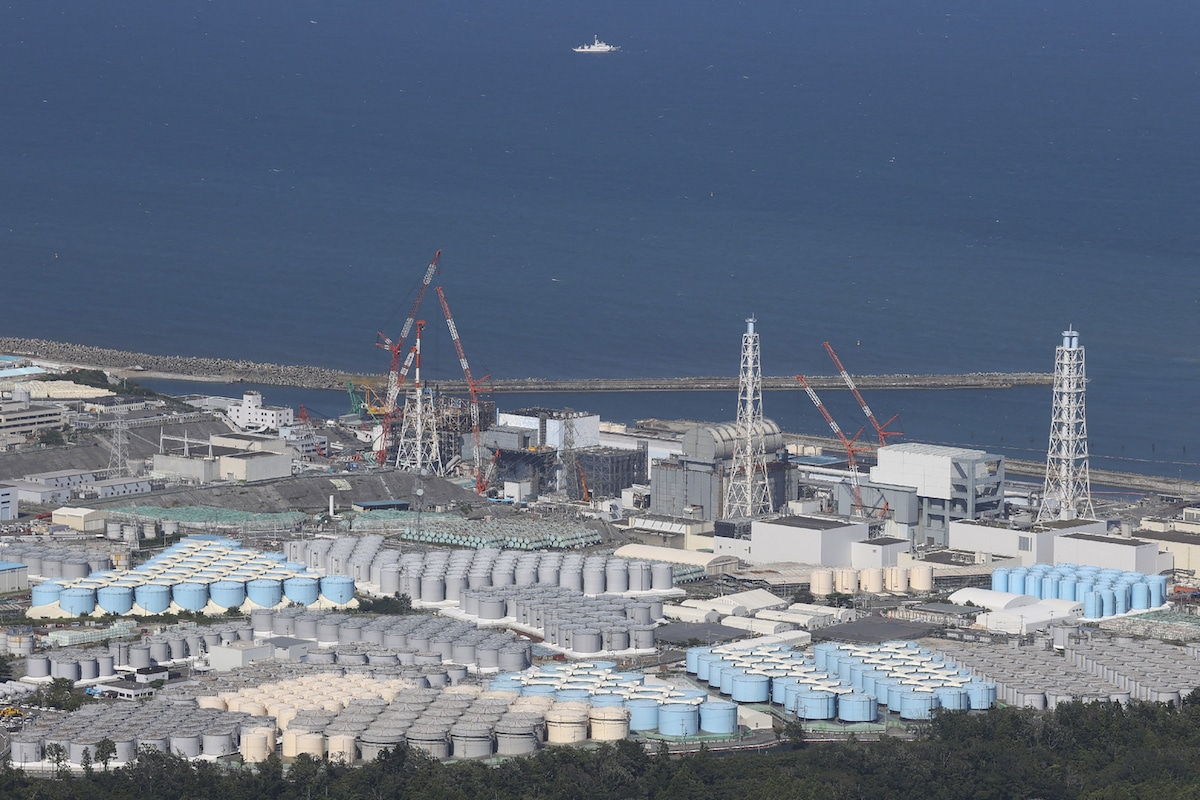China Bans All Japanese Seafood Imports as Fukushima Wastewater Is Released Into Pacific

 Why you can trust us
Why you can trust us
Founded in 2005 as an Ohio-based environmental newspaper, EcoWatch is a digital platform dedicated to publishing quality, science-based content on environmental issues, causes, and solutions.
Japan has begun discharging treated water containing radioactive tritium from the decommissioned Fukushima Daiichi Nuclear Power Plant into the Pacific Ocean. The move led to China announcing an immediate ban on all aquatic products from the island nation.
China’s customs bureau said in a statement that it was “highly concerned about the risk of radioactive contamination brought by… Japan’s food and agricultural products,” reported Reuters.
Last month, the United Nations’ International Atomic Energy Agency (IAEA) gave its approval for Japan to discharge the radioactive water. An earthquake and a tsunami destroyed the Fukushima Daiichi plant in 2011.
China called Japan’s release of the water a “selfish and irresponsible act,” CNN reported.
The purpose of the Chinese customs department ban on all imports of aquatic products from Japan was to prevent “the risk of radioactive contamination of food safety caused by Japan’s Fukushima nuclear contaminated water discharge,” the department said.
China accused the Japanese government of not proving that the radioactive water was safe.
“The Japanese side should not cause secondary harm to the local people and even the people of the world out of its own selfish interests,” China’s foreign ministry said in a statement, as reported by Reuters.
Japan said the water being released is safe, that the IAEA had concluded the water’s impact on the environment and humans would be “negligible” and that China was spreading “scientifically unfounded claims.”
Prime Minister Fumio Kishida told reporters that Japan had asked China to lift its aquatic products import ban immediately and would like to discuss the impact of the water’s release from a science-based perspective.
Japanese exports of aquatic products to China are Japan’s biggest exports market, worth about $600 million in 2022. According to government data, Japanese aquatic exports to Hong Kong and China made up 42 percent of the total last year.
Fukushima Daiichi plant operator Tokyo Electric Power (TEPCO) said no abnormalities had been identified with the release of the water so far, Reuters reported.
According to TEPCO’s test results released today, the first discharge of 7,800 cubic meters — which will happen over about 17 days — contained approximately up to 63 becquerels (a becquerel is one unit of radioactivity) of tritium per liter, which is well below the drinking water limit set by the World Health Organization (WHO).
Additionally, a statement released by the IAEA said its own on-site analysis showed the concentration of tritium was well below the WHO limit of 10,000 becquerels per liter.
“There are not going to be any health effects… There is no scientific reason to ban imports of Japanese food whatsoever,” said Geraldine Thomas, a former London Imperial College professor of molecular pathology, as reported by Reuters.
Japanese fishing groups opposed the water’s release, their reputations having been damaged by years of radiation fears.
Macau and Hong Kong also instigated bans of seafood imports from 10 regions in Japan.
The area surrounding the release of the water will be monitored by Japan. It is estimated that the total discharge of the water will take about three decades, and Japan’s Minister of the Environment Akihiro Nishimura said weekly results will be published.
According to some experts, nuclear power plants — including in China — have been discharging diluted tritium into the ocean for years without issues, The Guardian reported.
“Nuclear power plants worldwide have routinely discharged water containing tritium for over 60 years without harm to people or the environment, most at higher levels than planned for Fukushima,” said Tony Irwin, an Australian National University honorary associate professor, as reported by The Guardian.
Subscribe to get exclusive updates in our daily newsletter!
By signing up, you agree to the Terms of Use and Privacy Policy & to receive electronic communications from EcoWatch Media Group, which may include marketing promotions, advertisements and sponsored content.

 233k
233k  41k
41k  Subscribe
Subscribe 




